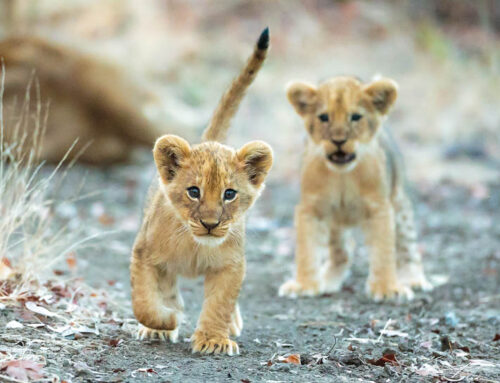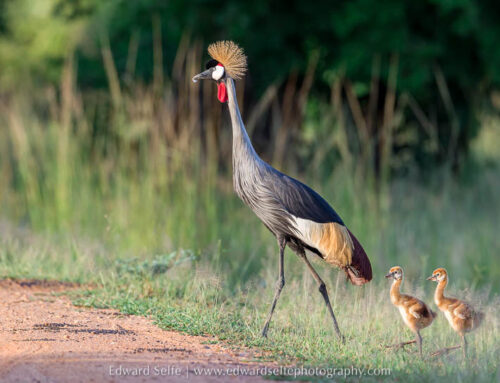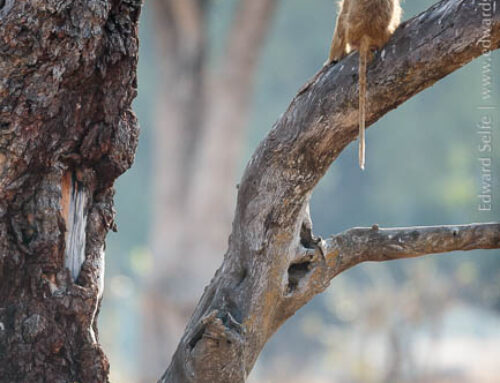Sightings of Wild Dogs are among the most sought-after by safari visitors. This is partly because they are interesting, charismatic and extremely beautiful, and largely because declining numbers have turned them into a rarity in many areas.
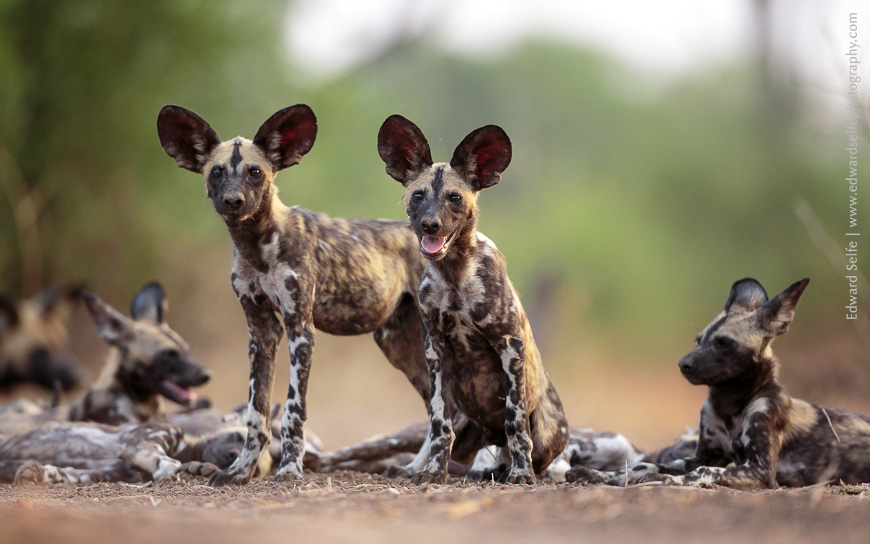
Some of the 9 pups from the Hot Springs Pack eye me up from their resting place with the rest of the pack.
If there is one characteristic that embodies Wild Dogs, it is their ability to run! Their hunting technique – of pursuing prey over long distances, rather than ambushing – is unusual among predators and results in packs moving large distances each day in search of prey.
In South Luangwa, pack sizes tend to range between 8 and 20 individuals. They are intensely social creatures, spending time resting, hunting and playing together. They are co-operative breeders; only the dominant (alpha) pair in the pack will breed, and the subordinate dogs assist in raising a successful litter of pups.
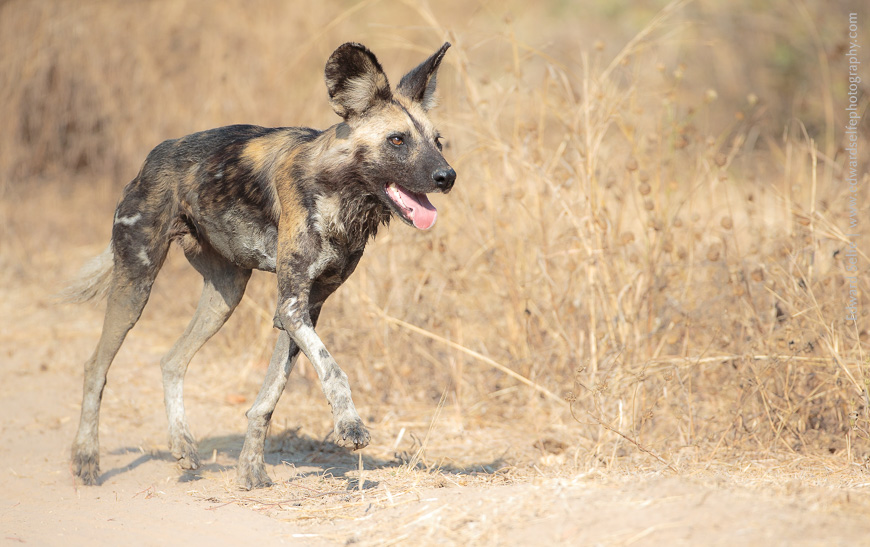
Long-legged and incredibly fit, wild dogs can cover up to 30kms in a day. Their default gait of a fast trot appears to transport them effortlessly through their bush environment.
They take a variety of prey, but favour small antelope such as impala and puku, working as a pack to split the herds and cause maximum confusion. Often one dog will catch an antelope and the others will quickly join to assist. Since they’re near the bottom of the carnivore hierarchy, they feed extremely rapidly, stripping a carcass in minutes. After a successful hunt, all the dogs return to the den and regurgitate lumps of meat for the alpha female and the pups.
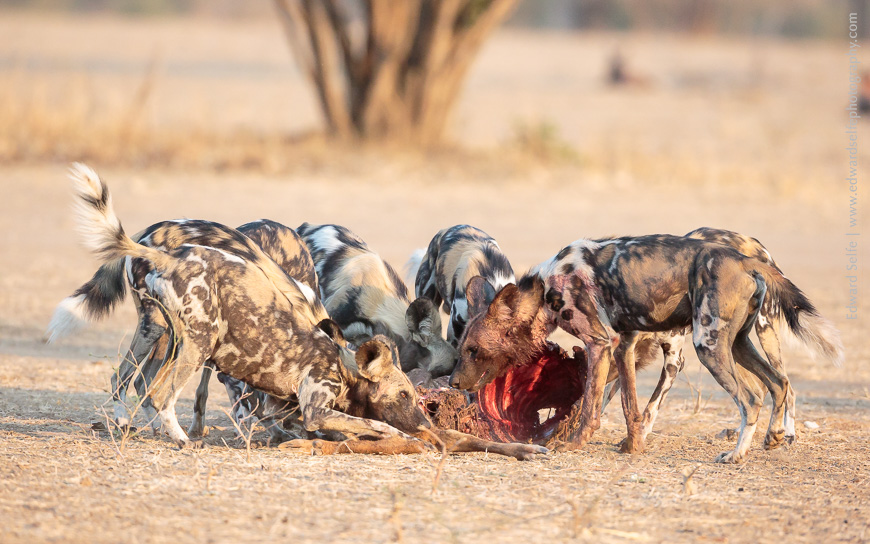
A large pack, such as the Manzi Pack (7 members shown here) will kill an antelope twice a day to feed the rest of the pack back at the den. Here, they finish off the remains of a puku kill.
After a successful denning season, the introduction of the pups can swell the pack size by as many as 10. At this stage, dispersal groups (often, but not always, formed by yearling dogs from the previous litter) separate from their natal pack and seek opportunities of their own. In searching for another pack, these dispersal groups can travel large distances, sometimes even to other National Parks.
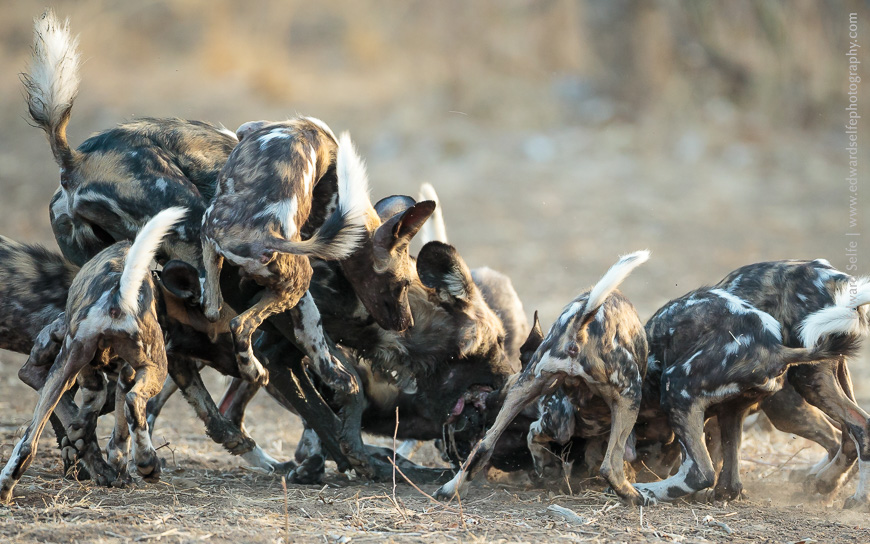
An adult dog from the Hot Springs pack regurgitates a lump of meat for the waiting pups. Competition is fierce among predators in game-rich areas, so the best place to store food is in a tree (leopards) or in your stomach (dogs!).
African Wild Dogs are making a real comeback in the Luangwa Valley, thanks to the concerted efforts of the Zambia Carnivore Programme and Zambia’s Department for National Parks and Wildlife. There are now more than 170 individual dogs in the Luangwa system – this year’s denning season will add many more to that – and we see them almost daily. We hope this trend continues!
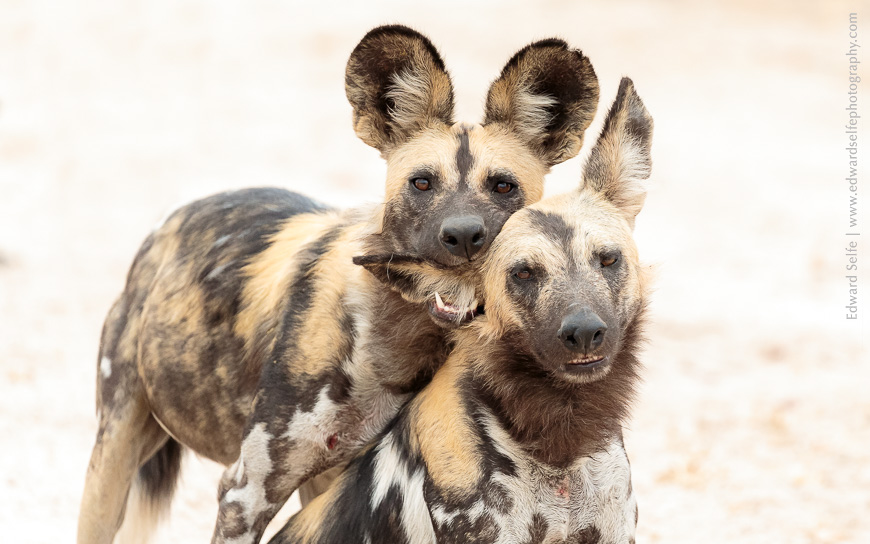
A playful wild dogs chews the ear of a companion in a bout of energetic play!

